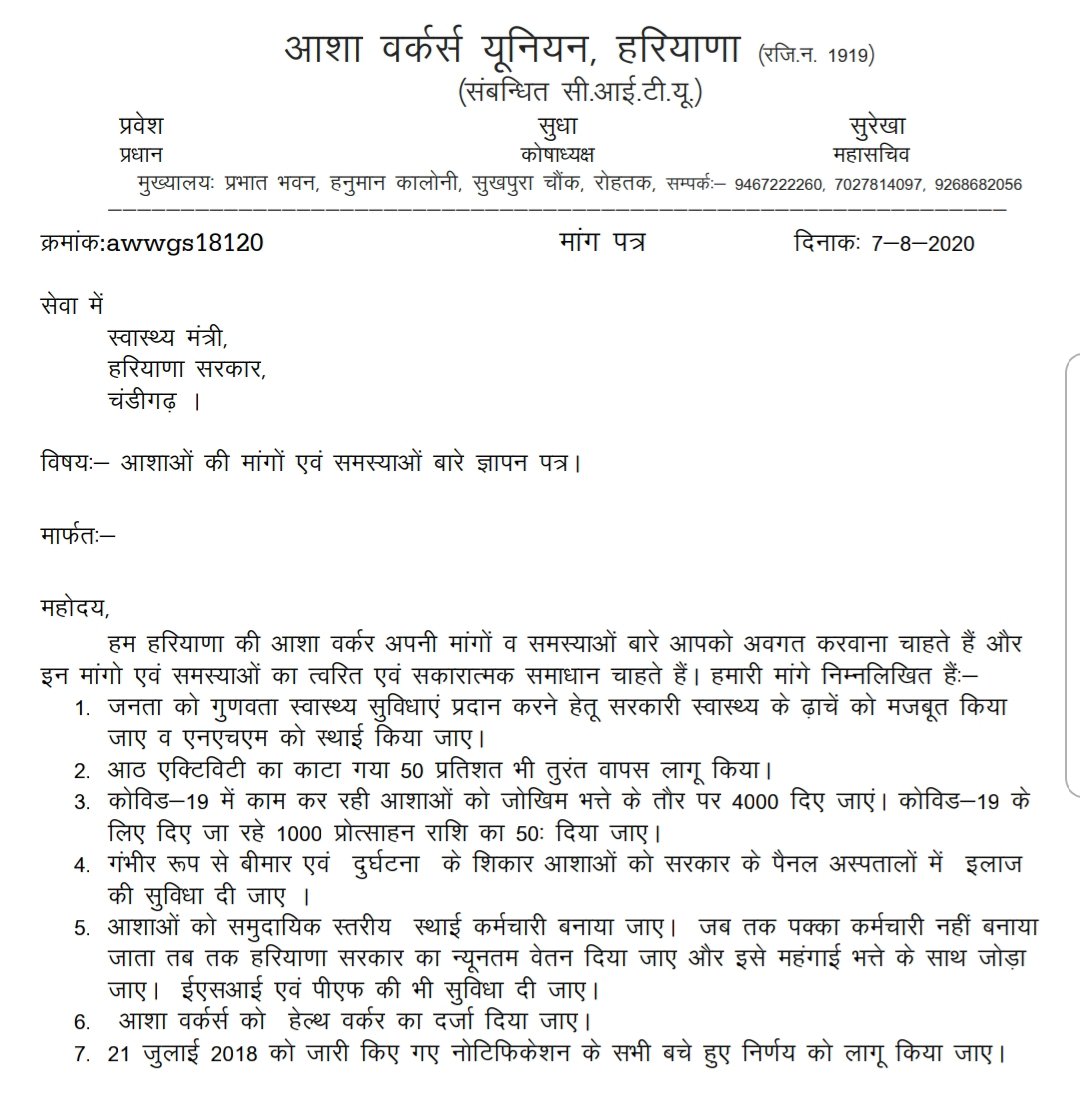The new Andhra government led by @ysjagan has increased the monthly salary of Accredited Social Health Activists (#ASHA) workers in the state to Rs 10,000 from Rs 3,000 as promised in his manifesto.
A thread on #ASHA workers salaries in other states:
A thread on #ASHA workers salaries in other states:
ASHA workers- a women only cadre in India’s Community Health Workforce- are a link between the community and the government healthcare services under the National Rural Health Mission. They are assigned 43 functions with a fixed remuneration for each.
#ASHA #GenderAndLabour
#ASHA #GenderAndLabour
ASHA workers are at the frontline of carrying out several key govt health services- immunisation, pre & post natal care, monitoring child health, and prevention of diseases like malaria & TB. Plus, they maintain copious amounts of health data.
Read More:
ruralindiaonline.org/articles/carin…
Read More:
ruralindiaonline.org/articles/carin…
In most states, ASHA workers are NOT paid a fixed salary. Instead, they are paid specific task based incentives, ranging from Rs 300 for institutional deliveries and ante-natal care to Rs 100 for immunisation programs.
#ASHA #FrontlineHealthWorkers #GenderAndLabour
#ASHA #FrontlineHealthWorkers #GenderAndLabour
Only few states have fixed monthly remuneration- a long standing demand of the #ASHA workers. These are:
Uttarakhand- 17,000
Andhra- 10,000
Telangana- 6000
Haryana- 4000
Gujarat- 3,500-4,500
Karnataka, West Bengal, Assam- 3000
Odisha- 2000
Kerala-1500
Himachal- 1250
Uttarakhand- 17,000
Andhra- 10,000
Telangana- 6000
Haryana- 4000
Gujarat- 3,500-4,500
Karnataka, West Bengal, Assam- 3000
Odisha- 2000
Kerala-1500
Himachal- 1250
Where #ASHA workers are paid only incentives for particular functions, travel and other costs like stationery are borne by the ASHAs themselves. Payments are largely delayed citing calculation difficulties for different incentives.
Read more:
downtoearth.org.in/news/health/in…
Read more:
downtoearth.org.in/news/health/in…
#ASHA workers in many states have been staging protests for a fixed minimum monthly salary of 18,000 along with regularisation as govt workforce along with Insurance, Employee Provident fund among other benefits.
newsd.in/bihar-bihar-go…
newsd.in/bihar-bihar-go…
#ASHA #FrontlineHealthWorkers #GenderAndLabour
More about it here:
newindianexpress.com/states/odisha/…
More about it here:
newindianexpress.com/states/odisha/…
In 2010, Parliamentary Committee on Women Empowerment in its report titled “Working Conditions of ASHAs” recommended that uniform fixed monthly salary for the entire country must be implemented along with the usual incentives.
Report:
http://164.100.47.193/lsscommittee/Empowerment%20of%20Women/15_Empowerment%20of%20Women_4.pdf
#ASHA #FrontlineHealthWorkers #GenderAndLabour
http://164.100.47.193/lsscommittee/Empowerment%20of%20Women/15_Empowerment%20of%20Women_4.pdf
#ASHA #FrontlineHealthWorkers #GenderAndLabour
ASHA health workers salary data compiled from different media reports by team @BehanBox. Please write to us if we have missed out any state that gives a regular fixed salary.
• • •
Missing some Tweet in this thread? You can try to
force a refresh







